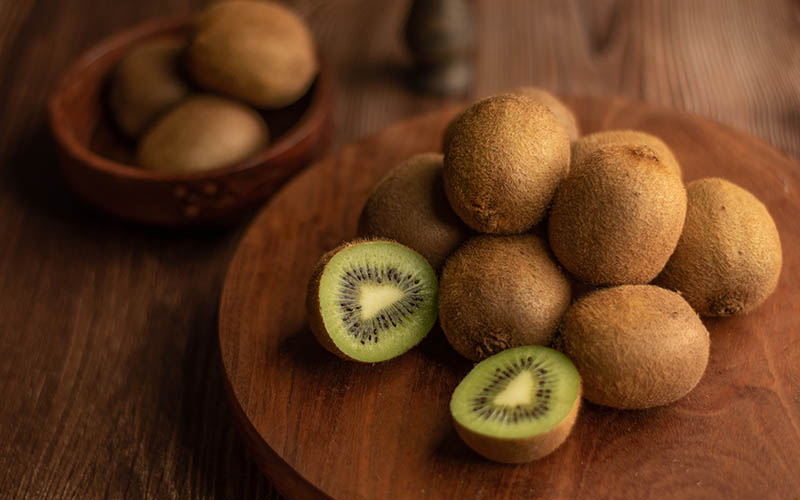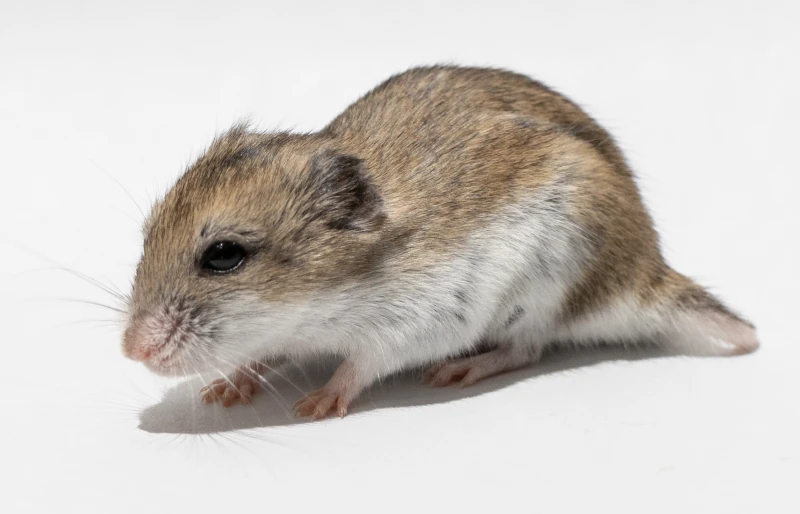Can Hamsters Eat Kiwi? Vet Approved Facts & FAQ
By Kit Copson
Updated on

This article has been reviewed for factual accuracy by a qualified veterinarian, using information available at the time of publishing. Hamster owners are urged to consult with their veterinarian when making dietary decisions for their pet. This article is designed to provide general information but it does not take into account your pet’s health status or circumstances.
As omnivores, wild hamsters eat a variety of foods, including seeds, nuts, plant matter, and insects. Hamsters also enjoy small amounts of fresh fruit. Kiwi is no doubt a favorite treat for many hamsters, and this sweet fruit is safe for them in appropriate quantities.
You should take care not to feed too much kiwi, and this goes for any fruit. Read on to find out more.
Are Kiwis Good for Hamsters?
In addition to being a safe fruit for hamsters, kiwis may offer some nutritional benefits because they’re full of antioxidants, vitamins, and minerals.

Risks of Feeding Kiwis to Hamsters
Any fruit fed in excess is risky for hamsters and can make them seriously ill, so moderation is essential. For one thing, due to the high water content in kiwis, too much of this fruit could cause diarrhea which could then cause dangerous dehydration and electrolyte imbalances. If you spot any signs of wet tail (watery diarrhea, dirty and matted fur around the tail, hunching over, and appetite loss), please consult your vet immediately.
Furthermore, kiwis are very high in oxalates, which can combine with calcium to form bladder stones. Too many oxalates can lead to the development of bladder stones in many species, and calcium oxalate stones have been noted in the hamster. Finally, kiwis and other fruits are high in natural sugars, so overindulgence can cause hamsters to put on weight.
How to Feed Kiwi to Hamsters
Quality pellets should be the base of a pet hamster’s diet, but you can supplement this with fruits and vegetables. These fruits and vegetables should be fresh—avoid kiwi-flavored candies, baked goods, or kiwis that have been prepared with other ingredients like sugar or chocolate.
It’s best to feed kiwi to hamsters in very small amounts along with pieces of various other fruits and vegetables. You’ll need to adapt the size of the pieces to your hamster’s size, but, as a general guideline, hamsters can eat about a teaspoon’s worth of ripe, fresh, and mixed fruit and vegetables daily.
Offering a very small chunk of kiwi around the size of the hamster’s paw once or twice a week is enough for this fruit alone—do not fill the spoon with just one type of fruit or vegetable. Chop different fruits and veggies up into tiny pieces and offer them together for variety but remember to introduce new fruits and vegetables gradually to prevent a tummy upset.
Beware that hamsters have a habit of transferring food from their bowl to a specific area in the cage for safekeeping. Check the area regularly and clean out any fruits or veggies you find there, as these could spoil. A buildup of spoiled food could contribute to health conditions—unsanitary conditions are a risk factor for wet tail.

Fruits and Vegetables to Avoid
While kiwis and several other fruits (including apples, bananas, pears, peaches, and melons) are safe for hamsters in the right amounts, some fruits and vegetables should be avoided.
- Orange
- Lemon
- Grapefruit
- Rhubarb leaves
- Eggplant
- Raw, green potato
- Chili peppers
- Uncooked kidney beans
- Onion
- Shallot
- Leek
- Garlic
- Chives
- Tomato leaves and stems
- Celery with strings
Final Thoughts
Now that you know kiwi is safe, feel free to go ahead and make your hamster’s day! Remember to stick to very small amounts and only feed kiwi once or twice a week along with other fruits and vegetables. Variety truly is the spice of life for hamsters, and they’ll have a blast trying out an assortment of crunchy greens and juicy fruits.
Featured Image Credit: Lesly Juarez, Unsplash











